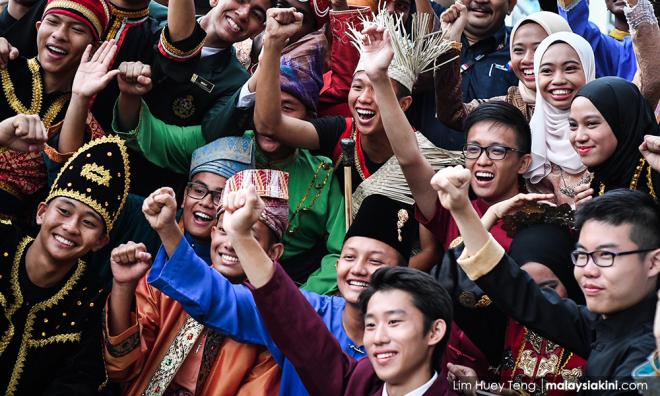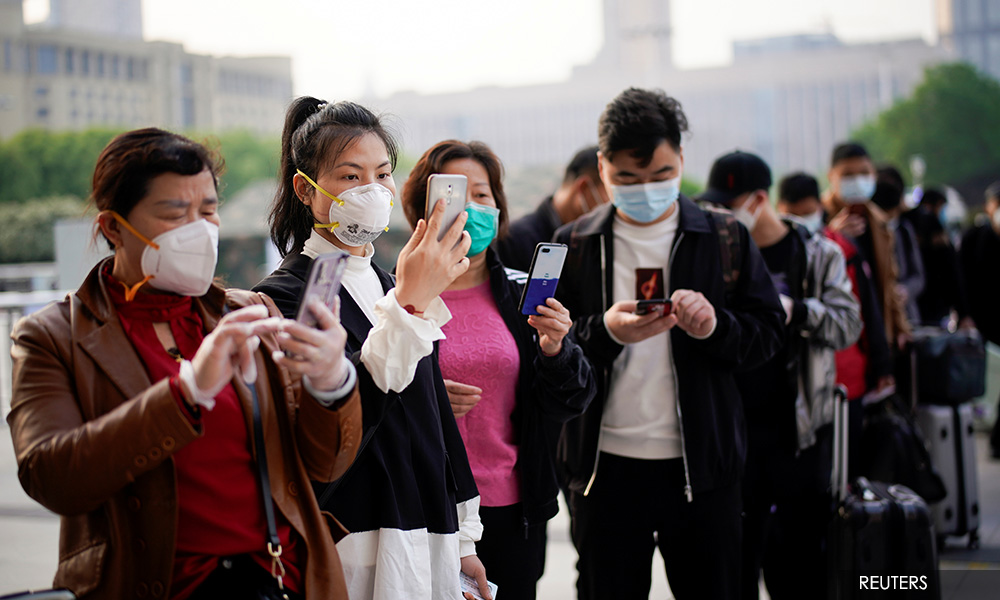
"Chinese virus" and "Chinese tea". "Chinaman" and "fine China". Some words do sound, and feel, more racial. It depends on who said those words to whom, for what purpose and how they affect the target community.
Racial adjectives essentially associate certain actions and features with a group of people. Some positive. Others less so, uttered to dominate (ketuanan Melayu/Malay supremacy) and segregate (bumiputra and non-bumiputra status).
Language expresses the workings of our mind. Racist thoughts and adjectives are used intentionally to devalue and denigrate the Other as lesser people of an inherently inferior culture. And, in its extreme, to exterminate through ethnic cleansing in Africa, genocides in Europe, pogroms in the Middle East.
Biological differentiation of race codified in, for instance, the Chinese Exclusion Act in the US (repealed in 1943), the White Australia policy (abolished in 1973), and apartheid in South Africa (ended in 1994), has long placed other racial groups lower in the social evolution ladder, born into servitude.
Hence, the slave trade from Africa, indentured labour in the colonies, prohibition of interracial marriage - including in Australia - up until the mid-1960s. (And, in many of today’s households, the enslavement and abuse of foreign maids).
Western media narratives of the non-European, non-white "Third World" have perpetuated this racialised history - even today in the demonisation of China as an "uncivilised" communist state and the cause of Covid-19.
The psychological effect of this Orientalist media narrative? It is the white man's burden to save the dark continent and former colonies from themselves.
Racism is seen as a predominately neocolonialist attitude of the West, when racial streaks reside in us all, albeit in varying intensity as a reaction to preconceived prejudices from the other side.
Consider the case of interracial marriage and the intuitive questions that ensue: How will the inherent differences in value systems and cultural norms, societal acceptance and in-law expectations, even dietary restrictions, shape the marriage? How will inter-racial parents raise their "third culture" kids? What will be their "mother tongue" and second or third language? And, so forth.
Call it "rational discrimination" or "personal preference", one's choice to court, engage with or socially distancing from the Other is influenced by hidden racial assumptions, cultural ideologies, prejudices and past experience.
The racist underbelly is fully exposed during a coronavirus-induced hyper-stress environment that is fuelled by alarmist narratives and misinformation on the internet.

Consequently, Asian students and professionals alike are wantonly attacked and spat on.
These racist attacks are, however, not completely unexpected in light of how the dominant majority is predisposed to collapse the range of Asian nationalities into a singular "Chinese" ethnic label.
The racial presumption works both ways though. I have mistaken a Canadian for an American, a Karenni for a Kachin, and a Liberian for a Sudanese just as my Aussie friends find it hard to differentiate me from other "Asians".
While the racial presumptions and actions by others are out of my control, I can, however, rethink mine and stand up to any form of racist slurs. I used to react then with the middle finger and occasional expletives. That didn’t help much to calm the situation. Aggression begat aggression.
As one ages, it is more of stepping back to gauge whether it is safe to confront the abuser who usually has the upper hand. Knowing the futility of engaging with racist morons, walking away is the wiser option - sometimes.
Side anecdote from an Eritrean acquaintance who was racially harangued in a park in Melbourne. How did she react? She calmly approached the person to explain her origin, the political conflict in Eritrea, and the plights of refugees in general. Now they are friends. An unexpected friendship formed from an unfortunate circumstance - rare but not impossible.
Today, combating racism online is more pointed and instantaneous, more collaborative with more effective reporting mechanisms such as the Australian Human Rights Commission’s No Place for Racism support services, and the Islamophobia Register of Australia.
Yes, we need to call out racism for what it is, such as the political denigration of Rohingya refugees, institutionalised discrimination of the New Economic Policy, racially exclusive access to UiTM and Amanah Saham, and race-based political parties.

Ethical resistance to racism requires personal commitment to speak up against racist assumptions and racialised language at home, at work and in public places. Never stay silent. Intervene and break the chains of false narratives and racist memes circulated on social media.
At the national level, the racist ideologies of politicians should be challenged with facts and data in an extended article or a considered letter to the editor of an established news outlet. Or start a petition to collect the required number of signatures for the issue to be addressed in Parliament.
That said, anti-racism measures can only endure and permeate through communities and institutions if they are implemented and practised at the points of power.
Which raises the question - will combating racism at the political level that is historically racist ever bear fruits unless the beneficiaries and victims of discriminatory policies are able to sit alongside each other as "equal" partners?
Failing which, the ultimate move is to vote against any "Malay-first", (or Chinese and Indian-first) politicians and support those who have shown in their personal and public life a strong track record for speaking up against systemic racism - and did something concrete about it.
I hope that quintessential politicians of the latter, though few, still exist in our midst.
ERIC LOO is the founding editor of the academic journal Asia Pacific Media Educator. - Mkini



No comments:
Post a Comment
Note: Only a member of this blog may post a comment.